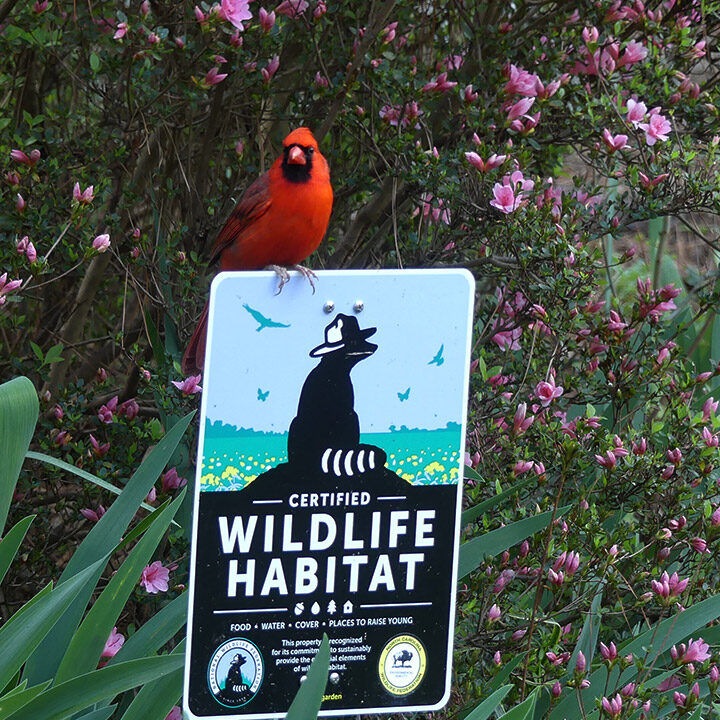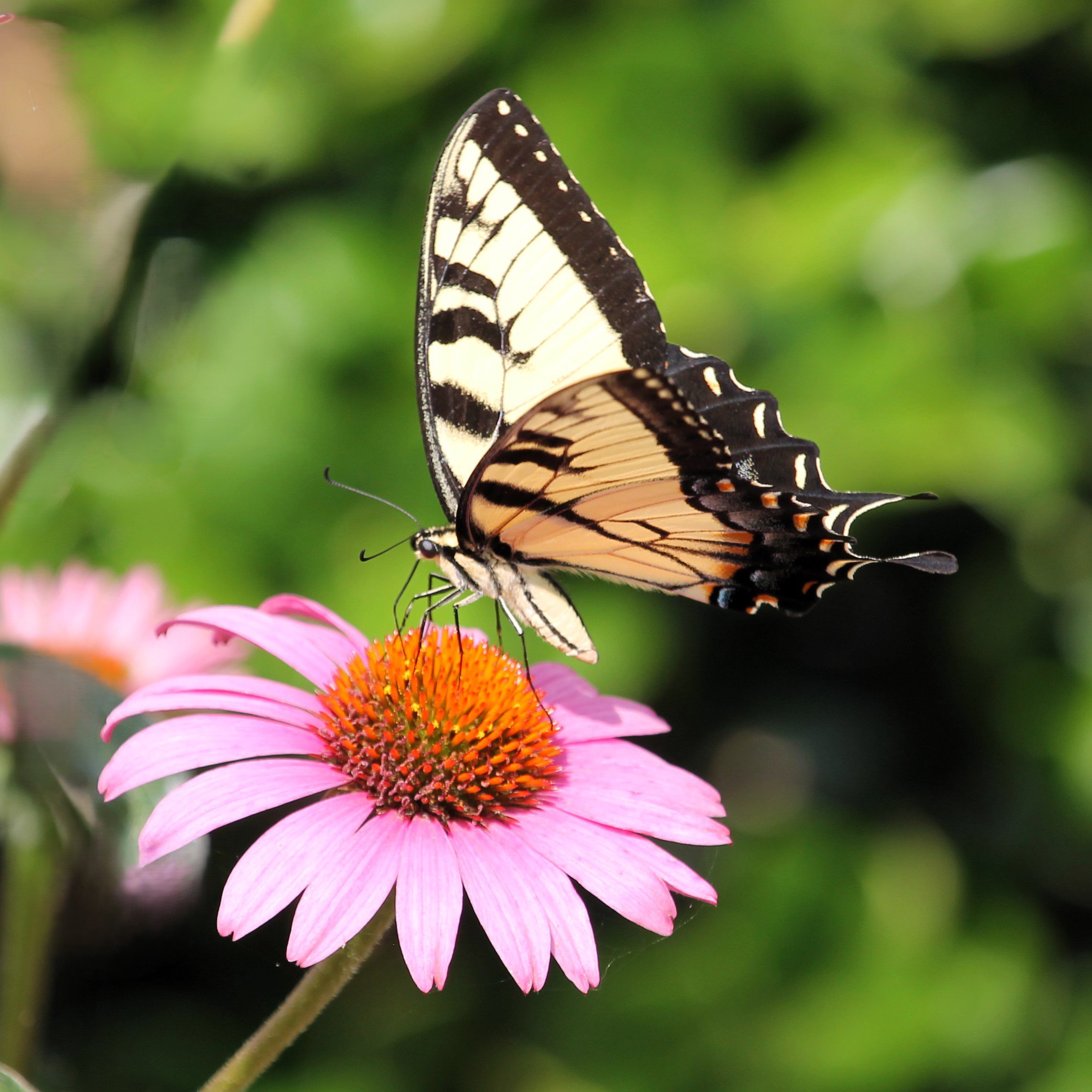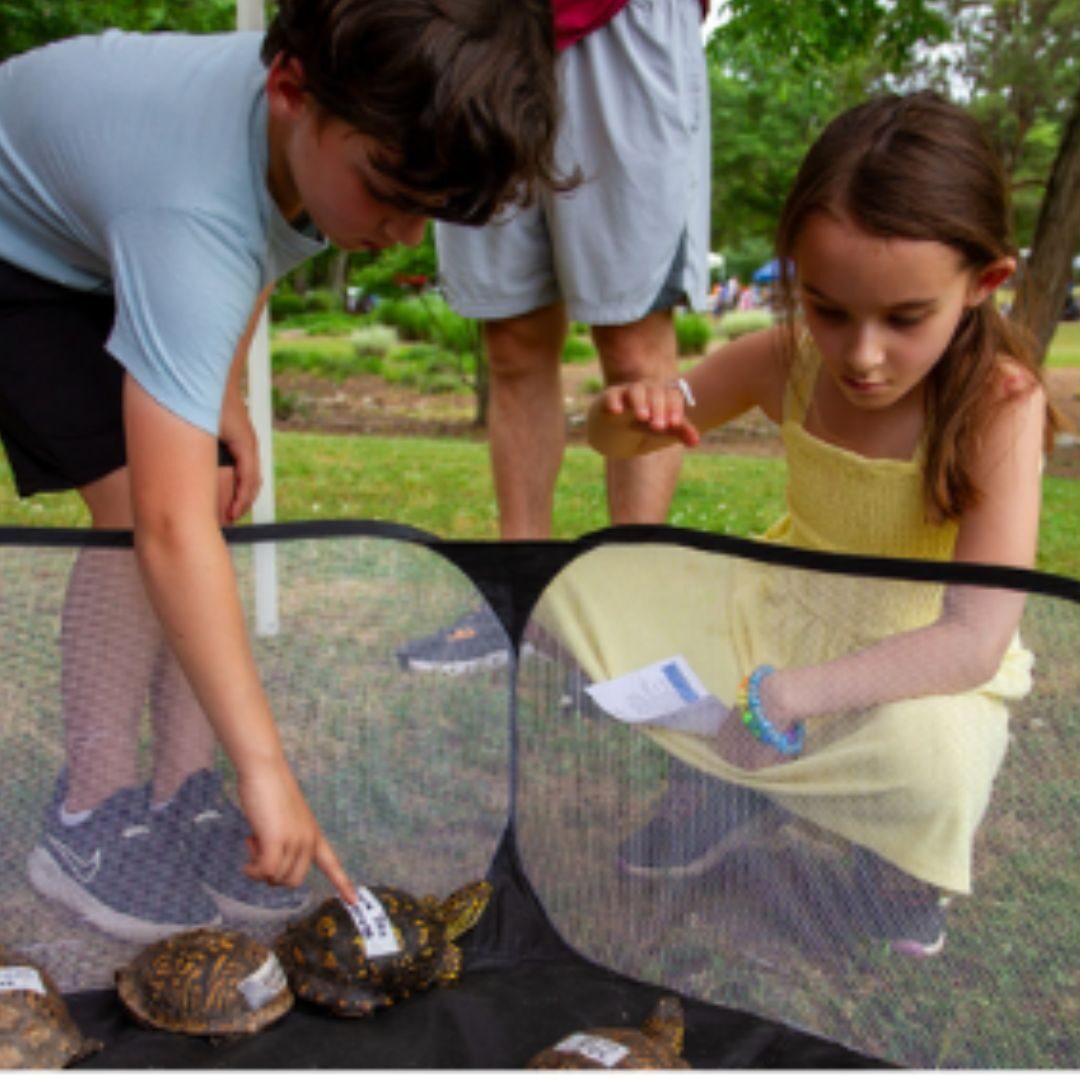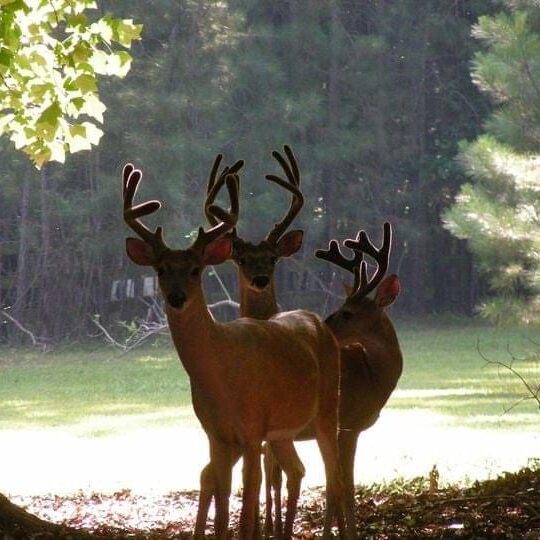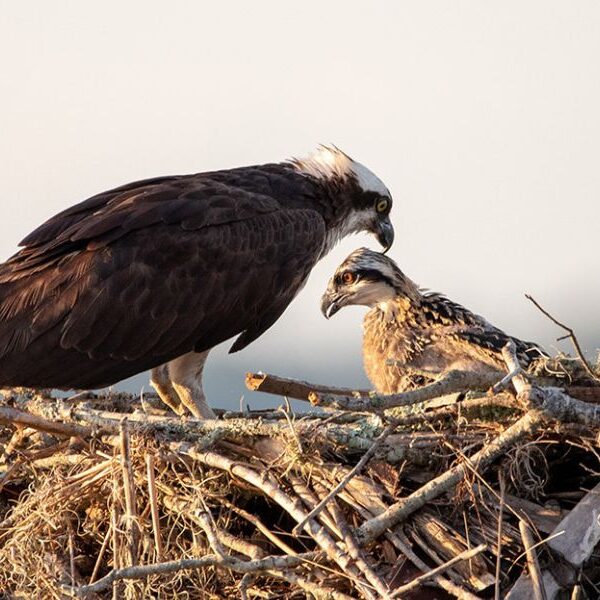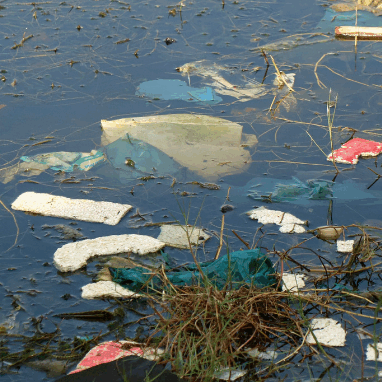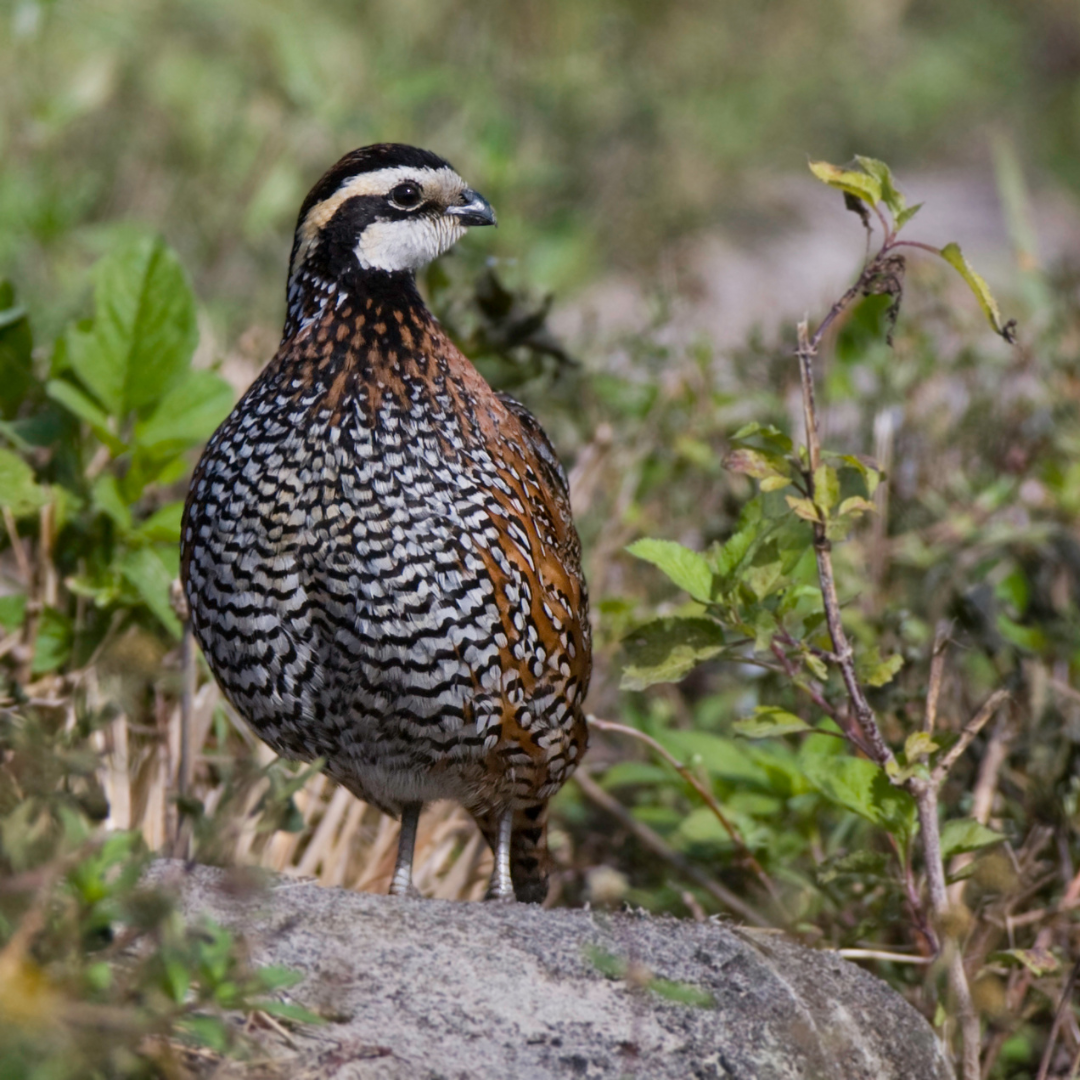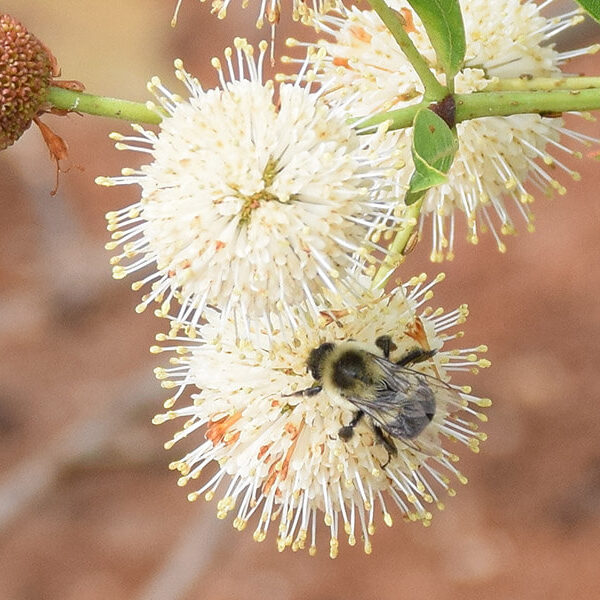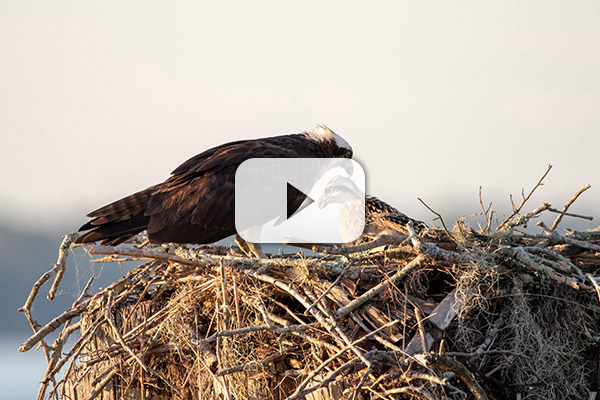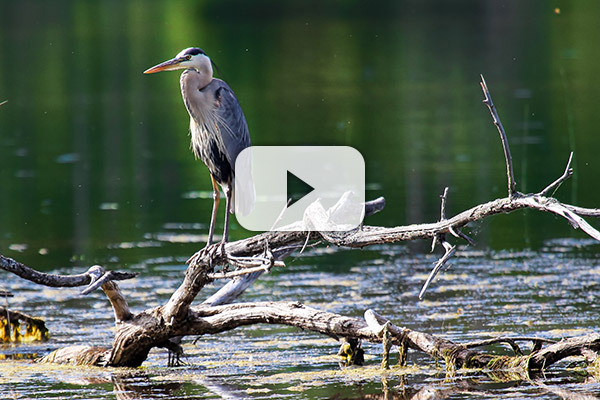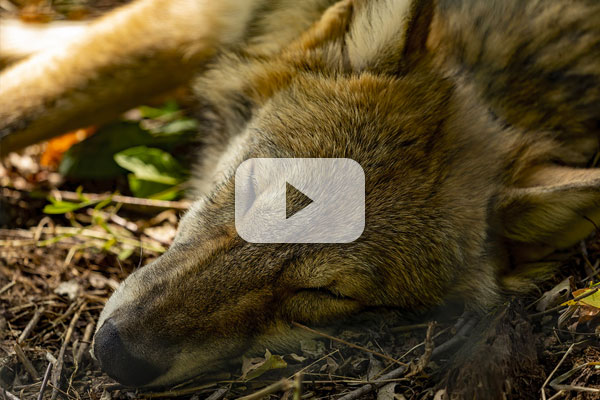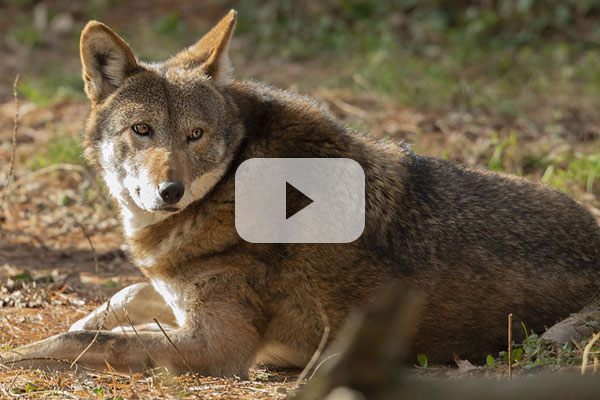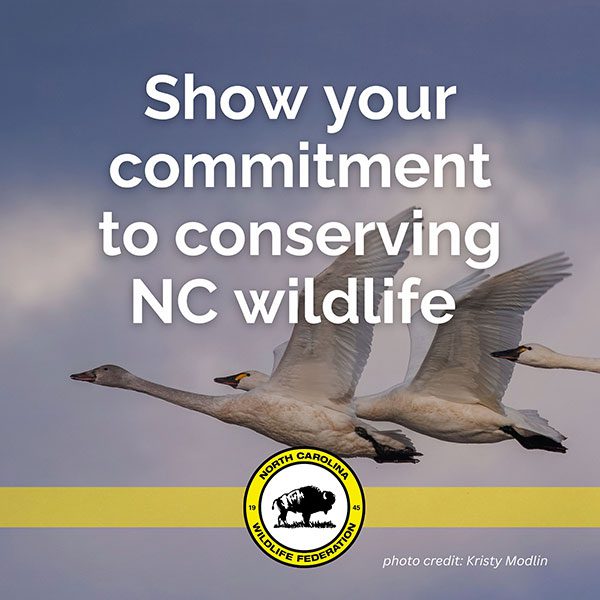NCWF has been protecting, conserving and restoring North Carolina wildlife and habitat since 1945.
Since 1945, North Carolina Wildlife Federation has worked for all wildlife and habitat, bringing together conservationists, wildlife enthusiasts, hunters and anglers, government and industry to protect North Carolina’s natural resources. From the Great Smoky Mountains to the Outer Banks, NCWF is a diverse community of people who value wildlife and wild places and the many ways to enjoy them.
Common sense conservation, supported by science.
Join Us for an Upcoming Event
Bamboo Redux (Cary)
Invasive Plant Removal (Matthews)
Brumley Oasis Fencing Workday (Chapel Hill)
Inwood Wildlife Garden Workday (Raleigh)
Wildlife and nature lovers can get a 24/7 glimpse into the life of a pair of captive red wolves at the Red Wolf Center in Columbia, N.C., located on Pocosin Lakes National Wildlife Refuge. Red wolves are rare and naturally shy, making it nearly impossible to view them in the wild. With one webcam in their den and the other in their outdoor enclosure, viewers can watch (and occasionally hear) the wolves anytime. An active osprey nest and a heron rookery are the stars of our other wildlife cams. Enjoy this rare opportunity to observe these amazing creatures up close and personal!


